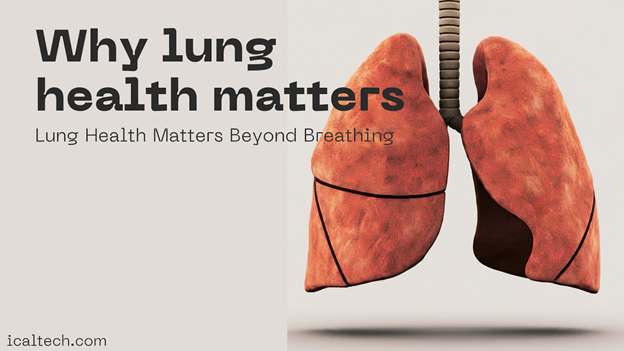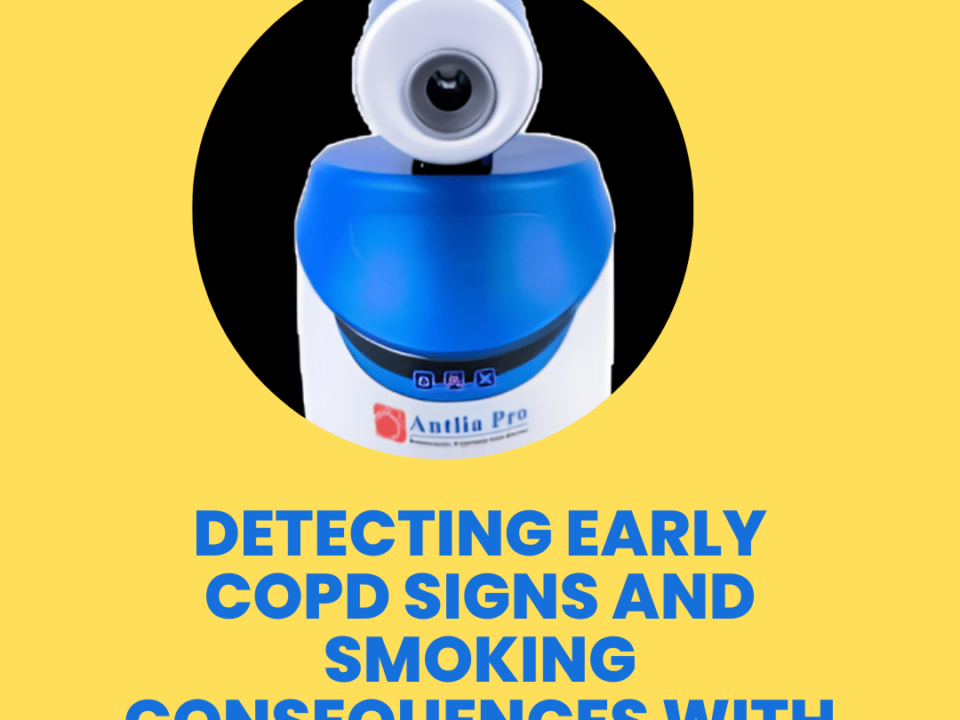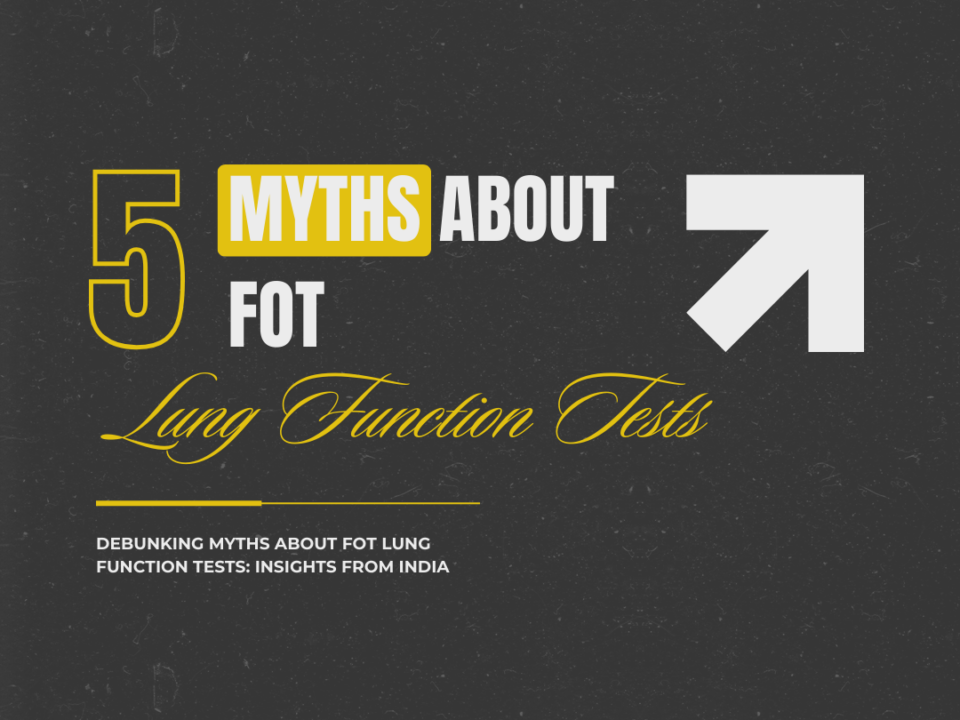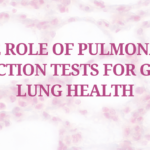
The Role of Pulmonary Function Tests for Good Lung Health
August 1, 2024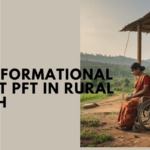
The Transformational Impact of Point-of-Care PFT in Rural Health
September 6, 2024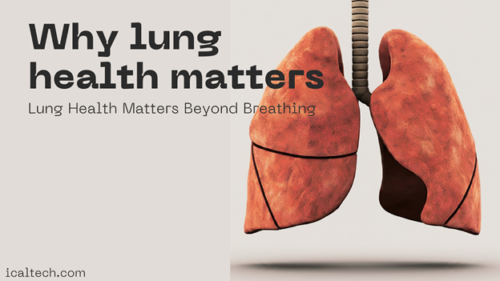
Why Lung Health Matters: Breathe Easy for a Healthier You
Breathing is something we take for granted. Throughout the day, our bodies automatically replenish and maintain energy through this process.
However, what occurs if those breaths become difficult to take or if a cough persists long after a cold? At that point, we understand how essential strong lungs are to our general health. This is where understanding respiratory impedance becomes crucial, as it provides insights into how well our lungs are functioning and how much effort is needed for breathing.
Despite being a vital component of total well-being, lung health is frequently disregarded until issues develop. This blog discusses the value of keeping your lungs healthy, things that can harm them, and doable things you can do to safeguard and enhance lung function.
The Power of a Breath: Understanding Lung Function
Breathing is a multifaceted dance. Air enters our system through our mouths or noses, passes down the trachea, or windpipe, and enters the bronchi, which subsequently divide into progressively smaller tubes known as bronchioles. These bronchioles eventually lead to tiny air sacs known as alveoli.
The magic occurs in these alveoli, where waste products from our cells, such as carbon dioxide, go in the opposite direction to be exhaled and oxygen from the air we breathe diffuses into the circulation.
With every breath, healthy lungs expand and collapse effectively, like flexible balloons. This guarantees that the bloodstream receives a constant flow of oxygen, supporting all of our organs and sustaining our energy.
Reduced lung function can upset this delicate equilibrium, which can have a cascade effect on one's health.
Life requires breathing because it allows the body to get oxygen and expel carbon dioxide. The air we breathe enters our lungs through the windpipe and passes through tiny air sacs called alveoli, which are where gas exchange takes place.
Strong and flexible lungs enable them to carry out these functions with every breath effectively.
Why Lung Health Matters Beyond Breathing
Our lungs perform more functions than only breathing. They are vital to our general well-being:
- Immune System Defense: Our lungs' lining serves as the first line of defense against infections and toxins. Mucus catches these intruders, while cilia, which are microscopic hairs, whisk them away. A healthy lung maintains these defenses, lowering the risk of respiratory infections.
- Blood Flow and Circulation: Healthy blood flow is supported by strong lungs, which do this by preserving appropriate blood pressure in the arteries that carry their blood. Our cardiovascular health benefits as a result of this.
- Exercise Performance: Our bodies require more oxygen when we exercise. Our muscles get this oxygen from our healthy lungs efficiently, enabling us to work out harder and longer.
- Detoxification: Waste materials from the body, such as carbon dioxide, are eliminated by the lungs. As a result, our internal atmosphere remains balanced and operates at its best.
- In rural areas, where access to healthcare resources is often limited, the awareness and management of lung health become even more critical.
Symptoms of lung problems
How can you be sure if your lungs are healthy or not? Symptoms that may indicate compromised lung function include:
- Chronic, persistent cough
- Breathlessness or shortness of breath during physical activities
- Chest tightness
- Frequent respiratory infections
- Fatigue/ lack of energy
- Decrease in ability to exercise
- Pain or discomfort when breathing
- Swelling in ankles, feet or legs
Protecting Your Lungs: Practical Steps for a Healthy Future
We can take numerous steps to maintain healthy lungs throughout our lives, even though certain lung disorders are unavoidable:
- Give Up Smoking: The primary preventable cause of lung illness is smoking. There are both short-term and long-term advantages to quitting smoking for your lungs.
- Avoid Secondhand Smoke: Exposure to secondhand smoke can be as dangerous as smoking. Reduce your exposure by staying away from smoke-filled areas.
- Inhale Pure Air: Pollution of the air can aggravate respiratory disorders by irritating the lungs. Pay attention to air quality advisories and think about bringing air purifiers inside.
- Exercise Frequently: Engaging in regular physical activity enhances your general health and strengthens your lungs. On most days of the week, try to get in at least 30 minutes of moderate-intensity exercise.
- Practice deep breathing: Deep breathing techniques can assist with stress management and lung function enhancement. To reap the greatest benefits, experiment with methods such as diaphragmatic breathing.
- Eat a Healthy Diet: Your body gets the vital nutrients it needs to maintain the health of your lungs from a diet high in fruits, vegetables, and whole grains.
- Get Vaccinated: Vaccines such as the flu shot and pneumonia vaccine can protect you against respiratory illnesses that can harm your lungs.
- Control Current Situations: Consult your doctor frequently if you have a chronic respiratory disease, such as COPD or asthma, to effectively treat your symptoms and preserve good lung health.
- Respiratory Oscillometry PFT Test with Antlia Pro: The Antlia system uses the non-invasive Forced Oscillation Technique (FOT) to evaluate respiratory health in situations involving tidal breathing. It is efficient, adaptable, and accurate, making it appropriate for patients of all ages, including the frail and old.
You can breathe easier, live healthier, and have a better quality of life if you make proactive efforts to improve your lung health. As always, it's never too late to begin taking good care of your lungs. Prioritize your lung health for a better, happier you!

